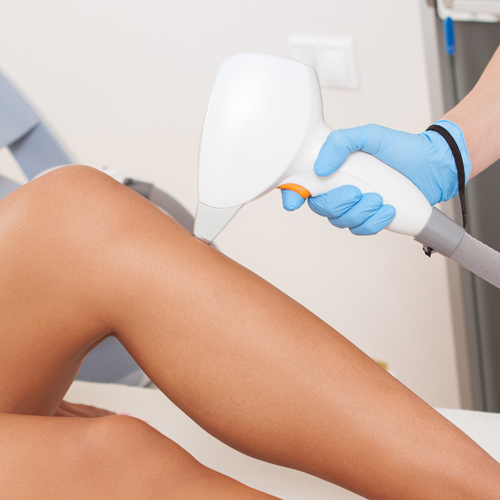

Laser Hair Removal
Laser Hair Removal Q & A
What is laser hair removal?
Laser hair removal is a method of removing unwanted hair from your body. Currently, it is one of the most popular minimally invasive cosmetic treatments on the market. Many people do not like the look of the hair that grows on their legs, arms, chest, back, chin, or bikini area and prefer to sport smooth skin.
The laser hair removal process is relatively simple. Your doctor begins by cleaning the targeted area. Once your skin is prepared, your doctor focuses a concentrated high-powered light beam, or laser, on the hair-covered area that you choose to target. The laser targets your follicles, which are the small cavities that hold each hair and promote its growth. The laser damages the follicles and delays or stops their ability to grow hair.
What are the benefits of laser hair removal?
As opposed to shaving, waxing, and plucking, laser hair removal has many benefits that keep patients returning for more. Benefits include:
- Long-lasting results
- Finer and lighter regrowth
- Cost-effectiveness over time
- Little or no discomfort
- Works on any area of your body
- No razor bumps
Furthermore, current laser technologies allow patients with all skin types and hair colors to see results with laser hair removal treatments. While there are a few potential side effects, such as redness and swelling, they typically go away within a couple of days of each session.
How should I prepare for my laser hair removal appointment?
In order to minimize your risk of side effects from laser treatments, you should follow your provider’s instructions closely on how to prepare for your appointment and take care of your skin afterward. To prepare for your appointment, you should:
- Stay out of the sun for a few days before your appointment
- Avoid anti-inflammatory drugs before your appointment
- Don’t attempt to wax or pluck your hair first
- Avoid substances that irritate your skin
During an initial consultation, your doctor determines whether or not the procedure is safe for you and warns you of the risks. If you’re concerned about pain or discomfort, you may ask for a numbing cream to be applied at your appointment.